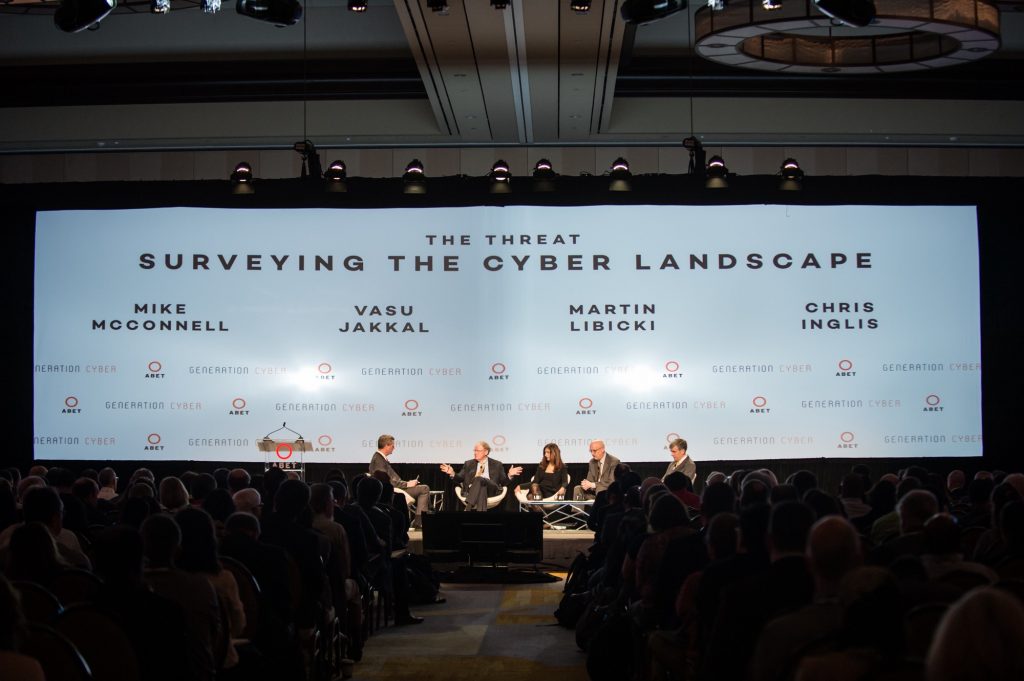It seems like every day I come across news about a major data breach or cyber-attack. Earlier this month, Baltimore was hit with its second cyber-attack in just 15 months. It’s been two weeks and about 10,000 city government computers remain frozen, delaying everything from completing home sales to issuing water bills. These attacks only seem to be increasing in frequency and scale, and no entity is immune.

We’ve witnessed amazing advances in technology over the last few decades and have become more connected as a result. But these technological advances have also come with a price — our personal privacy. In 2016, I filed my personal income tax returns only to have them rejected by the IRS because someone had already filed them for me… fraudulently. It frightens me to think how much personal information a stranger was able to collect about myself and my family in order to accomplish this feat.
The unfortunate reality is that cybersecurity affects each one of us: anyone with a mobile phone, bank account, social media presence, or email address. It’s a ubiquitous topic, but one that we cannot ignore. Cyber vulnerabilities impact almost every facet of our daily lives and in order to resolve this, industry and governments are searching for skilled cybersecurity professionals.
Currently, there are over 300,000 unfilled cybersecurity positions in the U.S. and many more thousands around the world. Cyber professionals have a less than one percent unemployment rate, and FireEye Cyber Security estimates that 3.5 million cybersecurity positions will go unfilled by 2021. In addition, employers report a significant cybersecurity skills gap. The professional association ISACA previously known as the Information Systems Audit and Control Association) recently found that 61 percent of organizations believe fewer than half of all applicants for open cybersecurity positions are qualified for the job. And as the Wall Street Journal reported last week, major companies are scrambling to hire hundreds of thousands of corporate hackers to protect their networks and data.
At ABET, our goal is to assure confidence in postsecondary STEM education so that today’s students, and tomorrow’s graduates, are equipped with the skills they need to build a better world — one that is safer, more efficient and more sustainable. Computing professionals play an integral role in achieving this, but cybersecurity is an important part of everyone’s education and shouldn’t exclusively be the role of computer science majors to solve.

Each year, we host our flagship event for accreditation, assessment and the global exchange of best practices in STEM higher education — the ABET Symposium. This year’s theme, Generation Cyber, focused on how we are preparing students and graduates to address the current and future challenges of protecting our cyberspace.
Almost 800 professionals from 34 countries around the world convened in Dallas to share strategies in technical education. What became apparent while listening to our speakers: countering cyber-attacks is a never-ending pursuit — one that will take the concerted effort of many to be successful, including educators. Some level of cybersecurity education should be a part of all engineering and computing programs. A secure and robust technical design must include security as a foundational part of the solution. We can no longer “add on” security solutions to protect our products and services from cyber criminals — they need to be incorporated early in the design process to ensure their effectiveness. A safe and secure cyberspace is not going to be easy, but the first step is quality education – across many disciplines.
At ABET, it is our role to help shape STEM higher education for the better, and we believe that infusing cybersecurity into everyone’s education is an important part of building a better world.